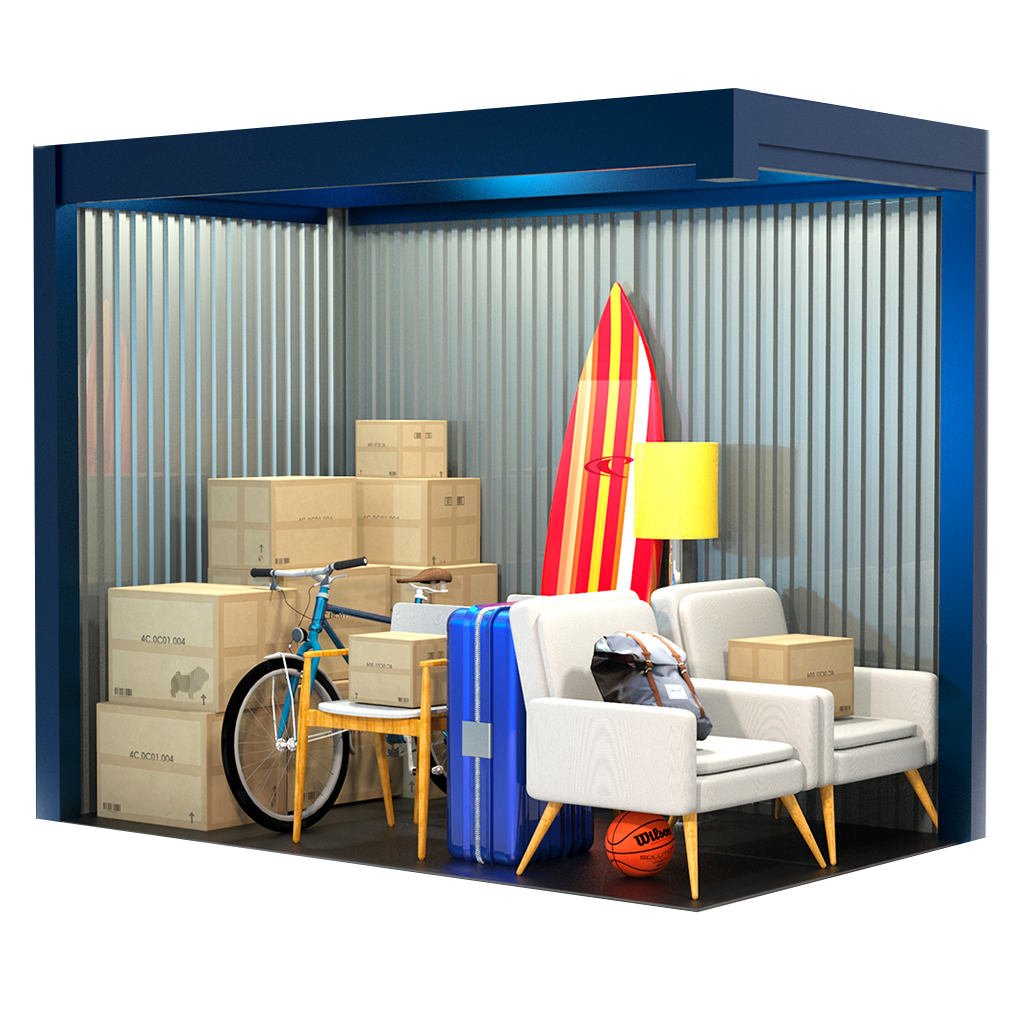
5’x10’ Unit
This estimation is based on popular tips for common storage based on this size.
Similar in size to a walk-in closet
Holds approximately 120 medium boxes/totes
The contents of one studio or one bedroom apartment
Equivalent of two small van loads
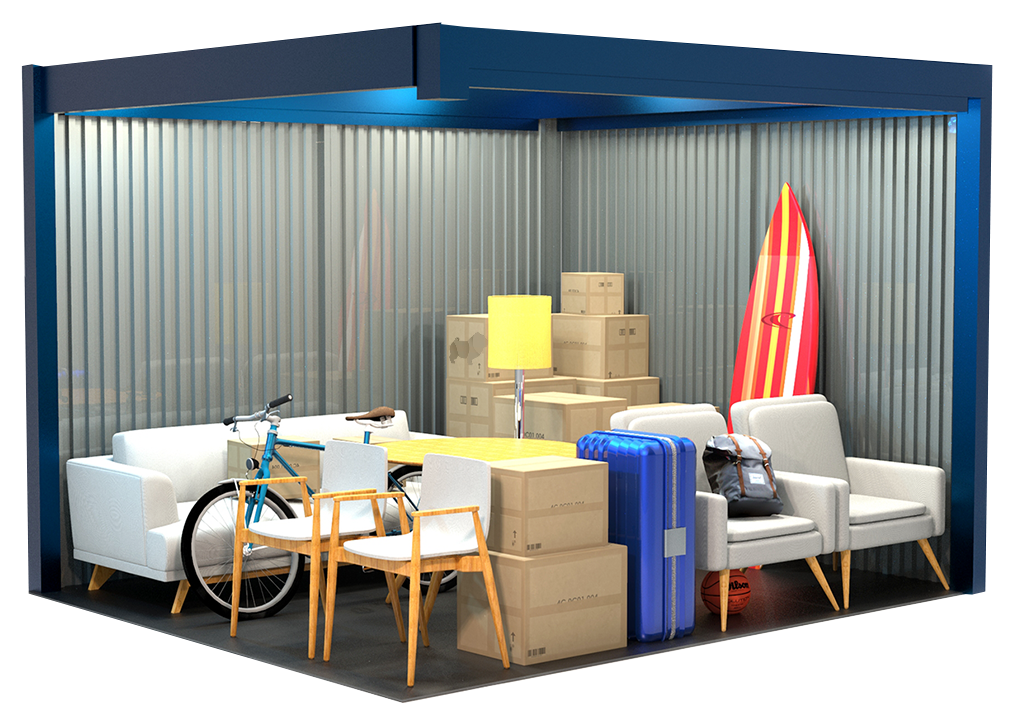
10’x10’ Unit
This estimation is based on popular tips for common storage based on this size.
Holds the contents of two bedroom house/apartment
Holds approximately 215 medium boxes/totes
The contents of a typical garage
Similar in size to a small bedroom or condo
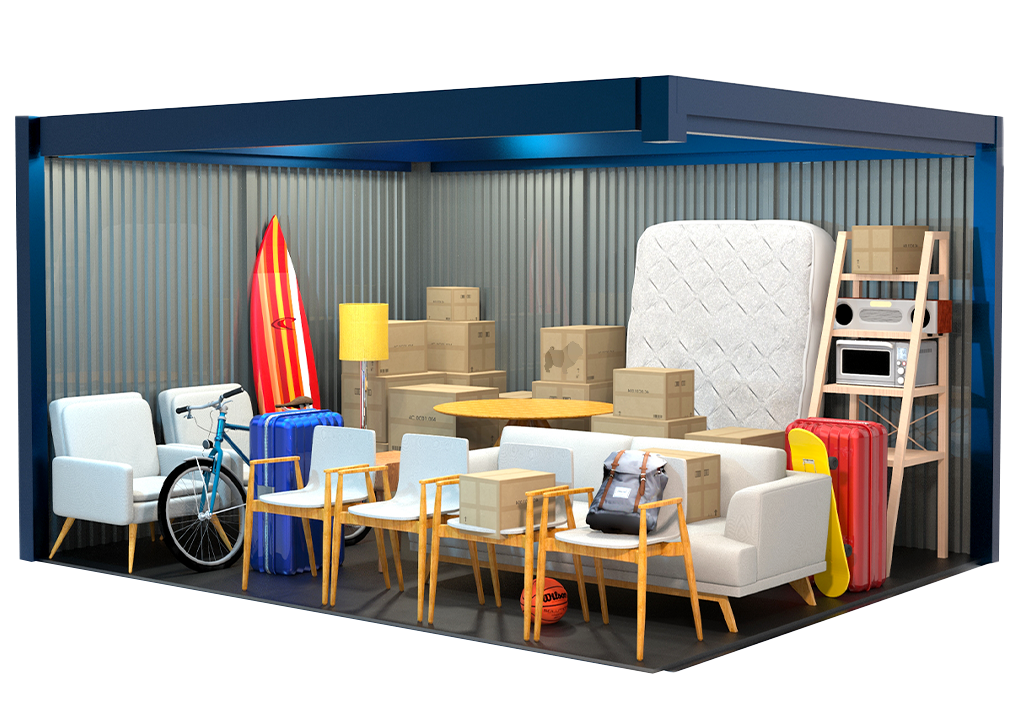
10’x15’ Unit
This estimation is based on popular tips for common storage based on this size.
Similar in size to a large bedroom. Slightly smaller than a single car garage.
Holds approximately 360 medium boxes/totes
The contents of a three bedroom house
Equivalent to one-to-two moving truck loads
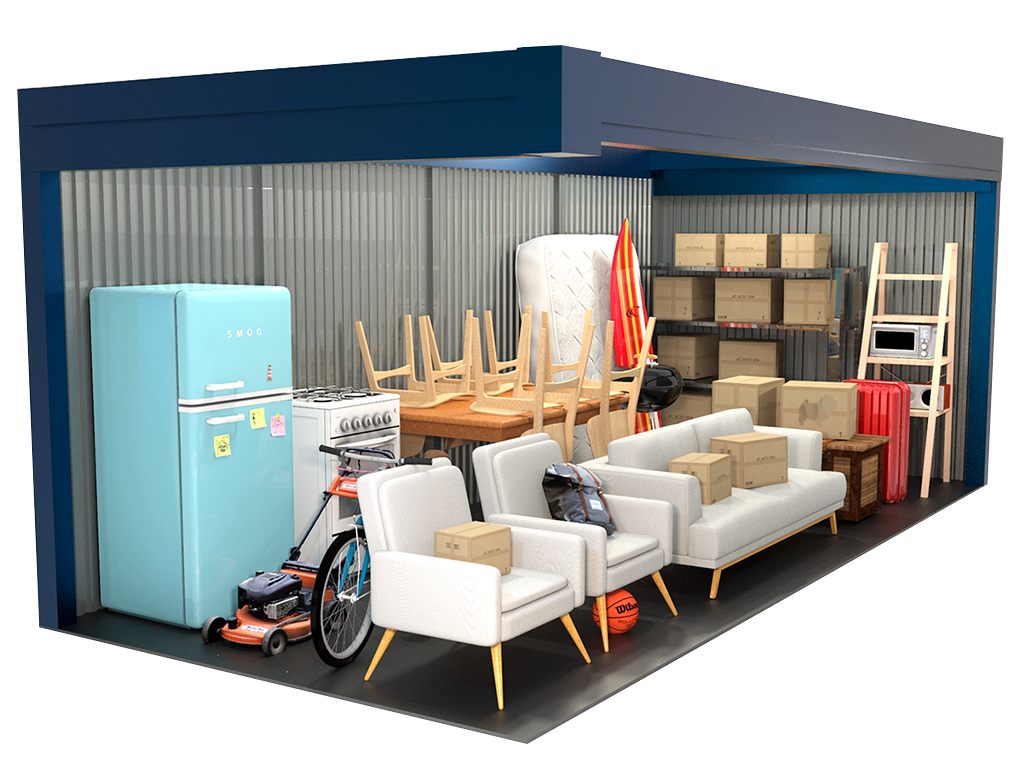
10’x20’ Unit
This estimation is based on popular tips for common storage based on this size.
Similar in size to a one car garage
Holds approximately 468 medium boxes/totes
The contents of a three-to-four bedroom house, plus garage
Equivalent of one-to-two moving truck loads
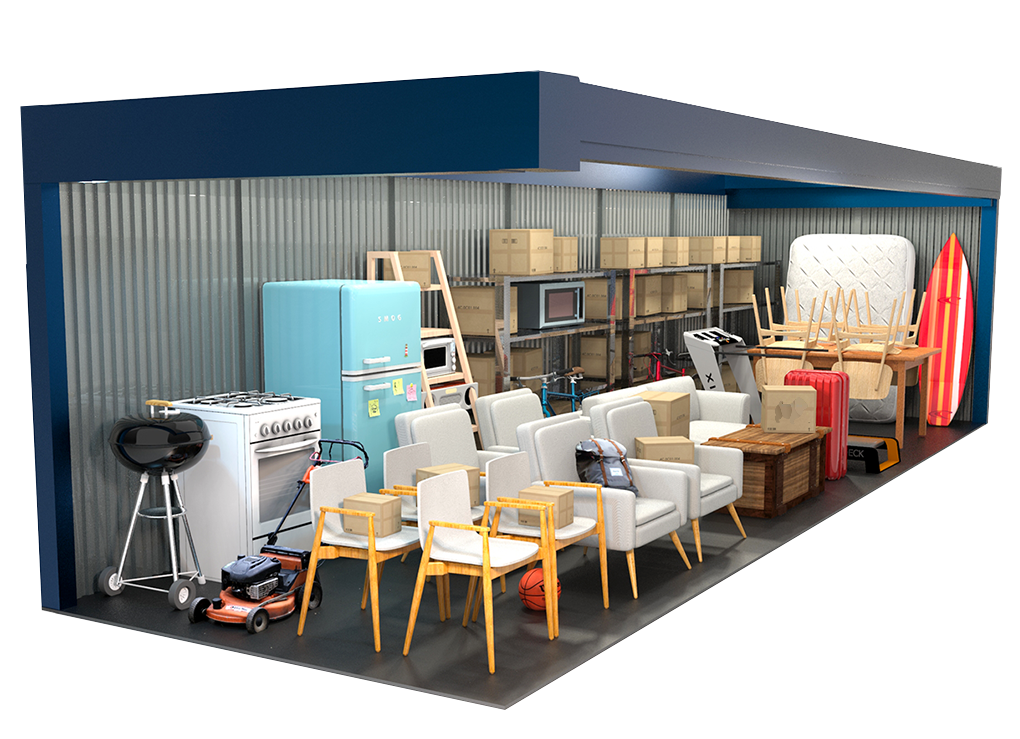
10’x30’ Unit
This estimation is based on popular tips for common storage based on this size.
Similar in size to a 1.5 car garage
Holds approximately 720 medium boxes/totes
The contents of a four bedroom house, plus garage
Equivalent to two-to-three moving truck loads

10’x20’ Small Parking Space
This estimation is based on popular tips for common storage based on this size.
One utility trailer or camper
Is similar to a single car garage
Will accommodate one normal-sized car
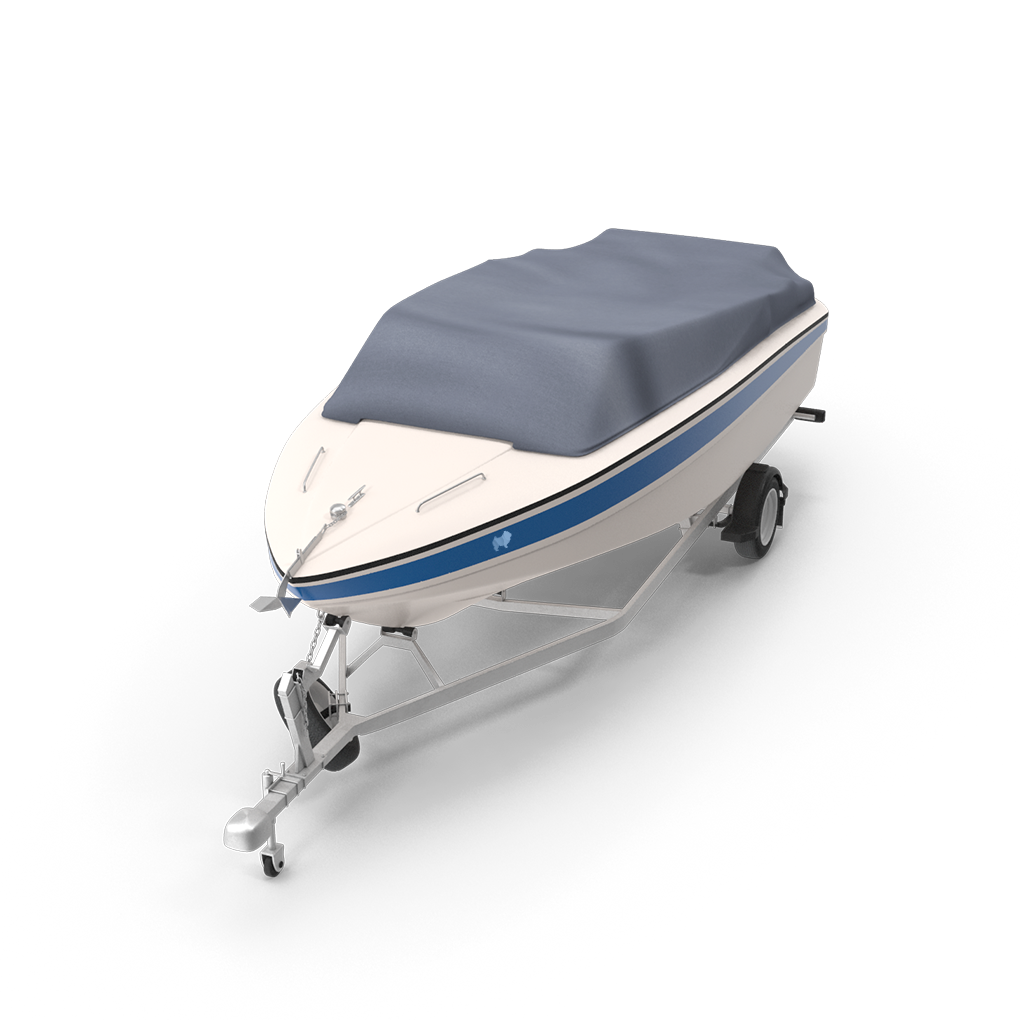
10’x30’ Medium Parking Space
This estimation is based on popular tips for common storage based on this size.
Will accommodate one small boat with trailer
Similar to a long single car garage
One Class C RV and medium travel trailer
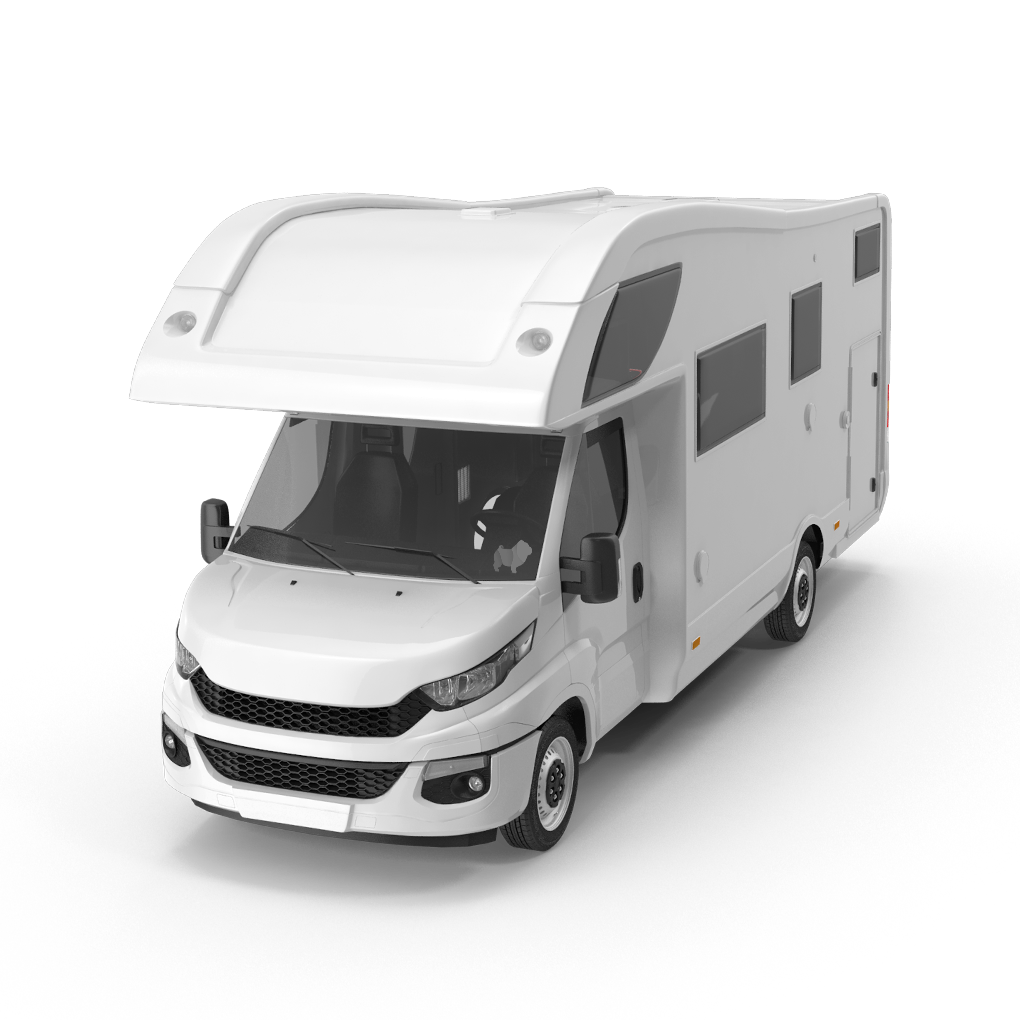
10’x35’ Large Parking Space
This estimation is based on popular tips for common storage based on this size.
Will accommodate one Class A RV
Is similar in size to a double deep one-car garage
A boat and trailer
Helping you choose the right size
Choose the right size storage unit the first time. The wrong storage unit can be costly, making you spend more time or more money than you should.
With our storage unit size guide, we’ll help you find the right size from the start!
Use our size guide to determine what size will best fit your storage needs. Once you know what you need, check out our available storage units!